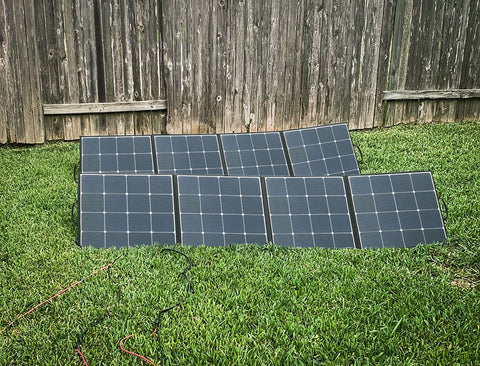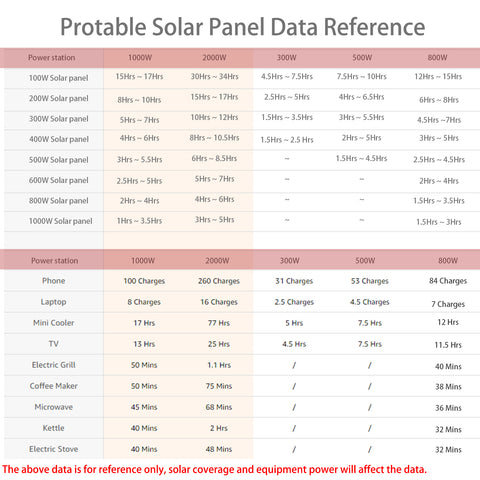HOW TO CALCULATE YOUR SOLAR REQUIREMENTS

Finding which solar panel is best suited to you can be a daunting task. Purchase one with an output that is too low, and you’re left powerless. Spend big on a top of the range, extra-large panel to later find out you only need to use small portion of the output, and you’ve unnecessarily overspent. One way to avoid making the wrong purchase is to calculate your equipment’s power usage. This will ensure you create a solar power set up that’s tailored to you. Here are a few tips to help get you started…

- Calculate your daily consumption
- Fridge 30-40 Amps per day
- Lighting 4 -6 Amps per day
- Phones/Tablets 4 Amps per day
- Most basic campsites will consume 40-50 Amps per day
*Tip: Go camping with a fully charged battery and see how long the battery powers your appliances for. Most devices will have a power draw lablelled on the product. Work out how long your equipment was able to operate on a single charge to calculate its overall power draw.
- Daily consumption to power pack/battery compatibility
Your battery or power pack should always be double the capacity of your daily consumption. For example, if you are using 30-50Amps per day your battery/power pack should be a minimum of 70-100Ah.
- Solar to power pack/battery compatibility
As the solar panel/s will be powering the battery, it will need to have twice the capacity (of the battery). For example, a 70AH battery requires a 120-150W of solar or a 100AH battery should have 180-220W of solar and so on. This allows for cloudy conditions or whatever else might obstruct direct sunlight over your campsite. *Tip: If you aim to get 50% of your maximum solar output as an average on each trip, you should be fine.
- Basic set up
What we’ve listed above will be enough to power a basic set up in reasonable conditions. Most campers, however, will carry more than one power pack and solar charger, especially if they are heading off-grid (some will take as many as they can pack!). We recommend taking at least one extra set in case you come across poor weather or unclear solar conditions.
- Always face the sun
To get the most out of your solar charger it is important to always have the unit facing the sun. That means turning and repositioning it multiple days a day (midday, early - mid-afternoon & at night to catch the sunrise).
-
The above content is reprinted from https://www.companionoutdoor.com/








Leave a comment